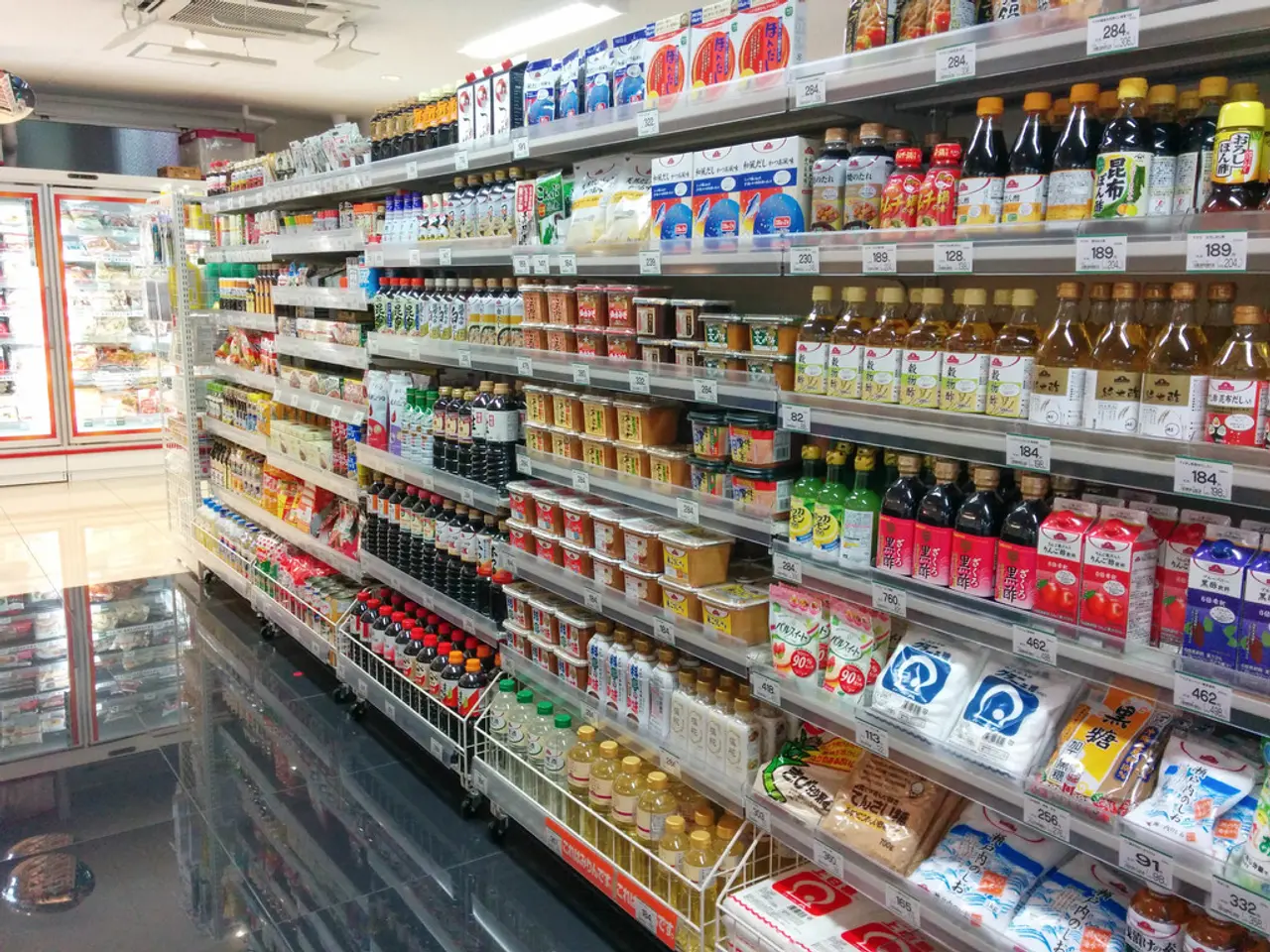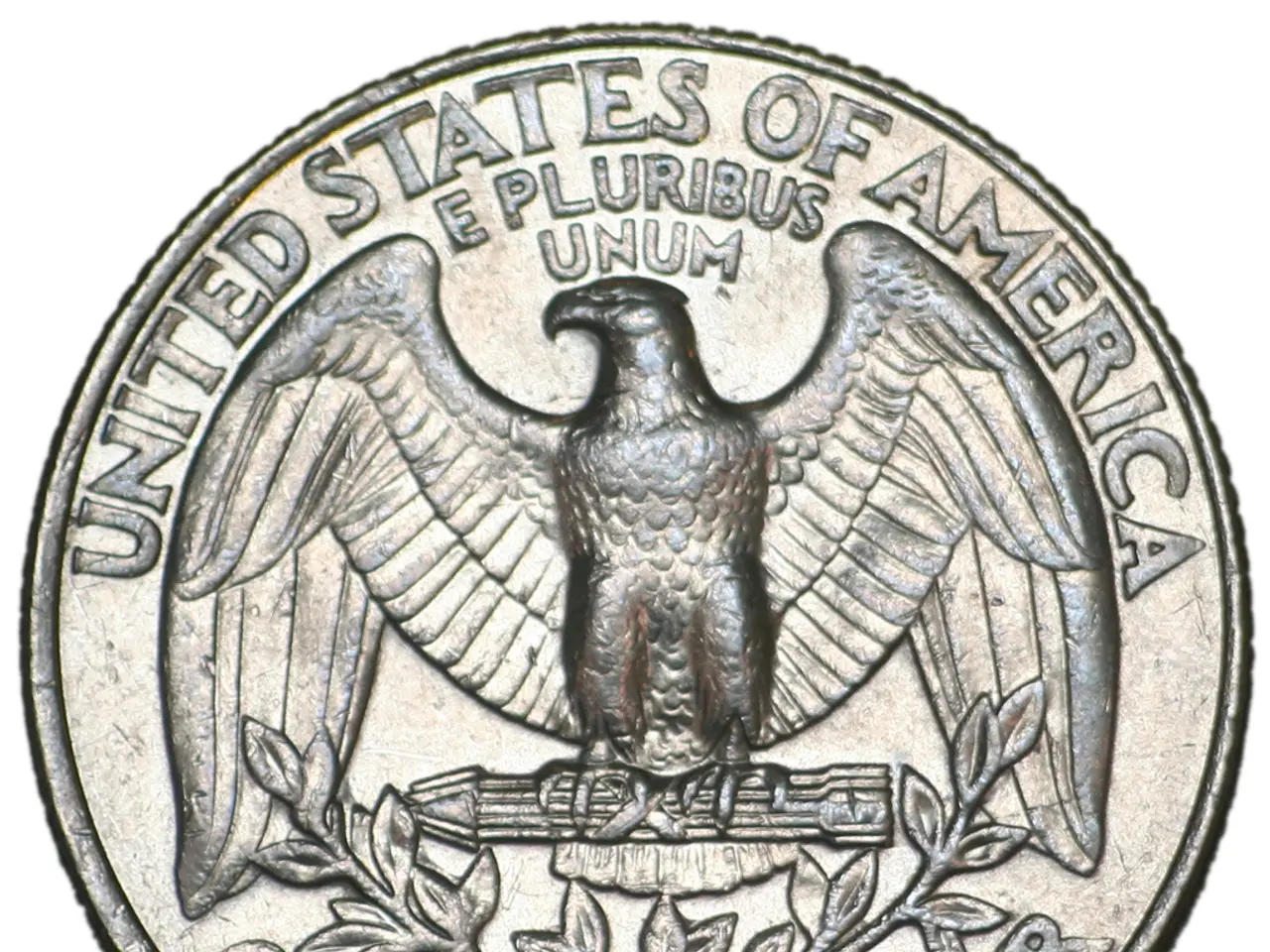Prices decreased, yet costs for coffee and fruits saw a notable rise, overall inflation declined. - Prices of coffee and fruits see a noticeable increase while overall inflation experiences a moderate decrease.
In North Rhine-Westphalia, Germany, consumers are facing a significant increase in the prices of coffee, fruits, and non-alcoholic beverages compared to last year. According to the state statistics office IT.NRW, the prices of these items have increased by an average of 7.2% for non-alcoholic beverages and 20% for coffee in June 2025.
Several factors have contributed to this increase. Germany has experienced a general inflation rate of around 2.0% in mid-2025, with food inflation being somewhat higher at about 3.25% in April 2025. This food inflation, in turn, has directly influenced the prices of fruits and beverages, including coffee.
Weather-related supply challenges have also played a role. Reports of declining yields in some agricultural products, such as strawberries, have affected wholesale prices. Although consumer prices remained relatively stable for some fruits like asparagus due to special retail offers, seasonal weather conditions have caused fluctuations in supply and demand.
Rising labor costs are another factor. Debates on raising the minimum wage to EUR 15 have caused concerns among producers, as this wage pressure can increase the cost of harvesting and processing fruits and coffee, thus pushing prices upward.
Energy prices and broader economic factors have indirectly impacted supply chains and production costs. Although energy prices were on average 2.5% cheaper in June 2024 compared to a year ago, their earlier high costs and overall economic conditions have persisted, contributing to core inflation pressures that affect non-energy goods such as food and beverages.
Despite these continued price increases, the rate of inflation in North Rhine-Westphalia is no longer as strong as it was in previous years. The inflation rate in NRW was 7.1% in 2022 compared to the previous year, but it decreased to 5.6% in 2023 and further to 2% in May 2025. Consumer prices in North Rhine-Westphalia rose slightly in June compared to the previous year, at 1.8%.
It's important to note that insurance costs in NRW have also increased, with prices rising by 8% in June 2024 compared to the same month the previous year. Conversely, the prices of vegetables have decreased by 4.2% in June compared to a year ago, and fuels were 5.2% cheaper in June 2024 compared to a year ago.
The prices of specific goods like apples and bananas have also seen increases, with apples being 8.4% more expensive and bananas 6.6% more expensive in June compared to a year ago.
These price changes are a reflection of moderate food inflation, weather-related supply challenges, rising labor costs, and sustained core inflation pressures, all of which contribute to higher prices compared to the previous year.
The community might need to re-evaluate their budgets due to the escalating prices of non-alcoholic beverages, coffee, and food-and-drink items, as indicated by the employment policy in North Rhine-Westphalia. The increased prices are linked to factors such as general inflation, food inflation, weather-related supply challenges, rising labor costs, and energy prices, which have indirectly affected the production costs.
Additionally, the finance industry should take into account the fluctuating costs of specific food items, like apples and bananas, in their lifestyle planning, as these items have seen significant increases in price compared to the previous year.




